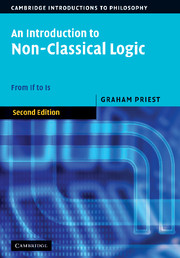Postscript: A Methodological Coda
Published online by Cambridge University Press: 05 June 2012
Summary
I conclude with a few comments of a methodological nature concerning the investigations of this book.
Let us start by returning to the objection to the theory of vague objects voiced in 25.7.9. The point there, recall, was that the theory given was not really a theory about vague objects at all. In the semantics of the language, the identity relation is the standard crisp one. What this shows is that the objects we are dealing with are really crisp objects. The identity relation of the object language is not really identity, just some sort of similarity relation.
There is something wrong about this objection, and something right. It is certainly the case that the identity relation of the object language and the identity relation of the metalanguage (in which the semantics are expressed) are different. It does not follow that it is the relation of the object language that is not the real notion. It is open to someone who holds that there are genuine vague objects to maintain that it is the identity relation of the metalanguage that is not really identity. To claim otherwise in this context would be to beg the question.
It remains the case, however, that the identity relation of the object language and the metalanguage are out of kilter. There is therefore something prima facie awry in the situation.
- Type
- Chapter
- Information
- An Introduction to Non-Classical LogicFrom If to Is, pp. 584 - 586Publisher: Cambridge University PressPrint publication year: 2008



